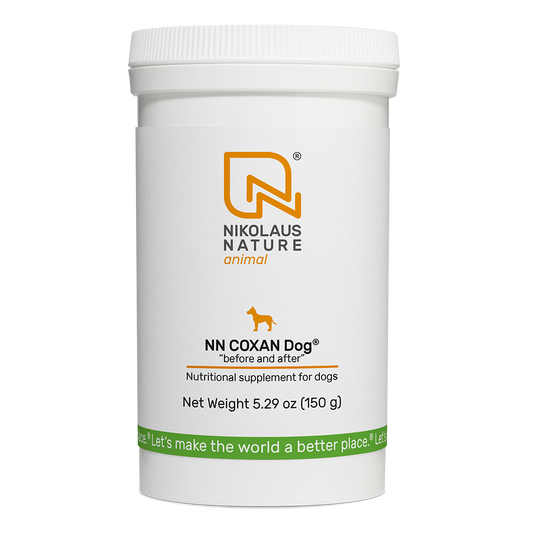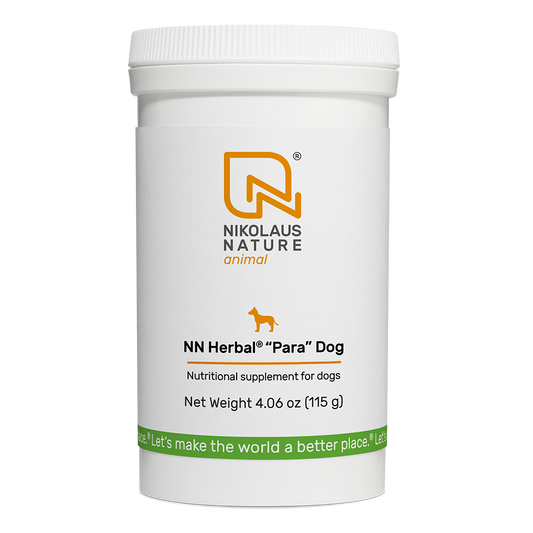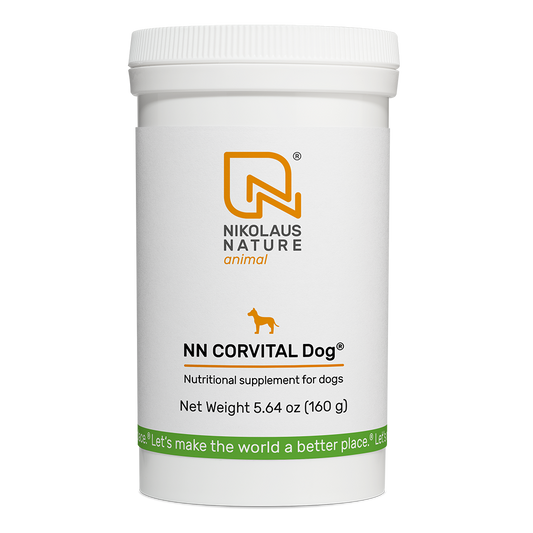How To Get Rid of Heartworms in Dogs
Heartworm disease is a life-threatening condition that affects a significant number of dogs across the United States. According to the Baker Institute for Animal Health approximately 1.5% of dogs are infected– with prevalence varying by region. So, what can you do to eliminate them?
Heartworms in dogs can be treated and eliminated through a combination of medications, diet adjustments, and sometimes surgery. Treatment plans often involve adulticide injections to kill adult worms, microfilaricidal to target larvae, and antibiotics to treat secondary infections. During recovery, rest and activity restrictions play an important role.
Read on to learn more about heartworms in dogs, their life cycle, diagnosis, and available treatment options.

What are Heartworms?
Heartworms, scientifically known as Dirofilaria immitis, are long, thin parasites that can grow up to a foot long and live inside the heart, lungs, and blood vessels of infected animals – mainly dogs, cats, and ferrets. However, they can also infect wild animals like foxes, wolves, and even sea lions. In rare cases, they infect humans too.
Heartworms have a tiny bacteria called Wolbachia pipiens that lives inside them. This bacteria helps them grow and reproduce and causes heartworm disease in dogs.
Female heartworms are larger than males and measure 10 to 12 inches long and 1/8 inch wide. On the other hand, males are about half the size. The good news is that heartworm disease is preventable with medications.
Life Cycle of Heartworm in Dogs
Heartworm disease spreads from dog to dog through mosquito bites. First, a mosquito bites an infected dog. It sucks up tiny heartworms called microfilariae. Next, the microfilariae mature into infected larvae inside the mosquito within 10 to 14 days. Then, this mosquito bites another dog and transmits the infective larvae.
After entering the new dog, the larvae travel through the body. They reach the lungs in three months. Over the following three months, they grow into adult heartworms. Adult heartworms damage blood vessels and also prevent the heart from pumping properly. Adult heartworms live for 5 to 7 years. They mate and produce more microfilariae. These microfilariae circulate in the bloodstream and infect other mosquitoes – when they bite, and in this way, the cycle continues.
It’s important to note that the process from mosquito bite to adult heartworm takes about 6 to 7 months. This means a dog can have heartworms without showing symptoms for a long time.

Stages of Heartworm Disease
Heartworm disease progresses through four distinct stages. Each stage has its own severity and symptoms.
- Class 1: In the early stage, dogs often show no symptoms or only mild ones like an occasional cough, which makes early detection difficult.
- Class 2: As the disease advances – mild to moderate symptoms appear. Dogs get tired easily after moderate activity, and they cough more frequently.
- Class 3: This stage brings severe symptoms. Dogs have a persistent cough. They tire quickly even after minimal activity. Dogs appear generally unwell. Breathing difficulties and signs of heart failure are common.
- Class 4(Caval Syndrome): This is the most severe, life-threatening stage. A massive number of worms block blood flow to the heart. The only option is a risky surgery to remove the worms. But, even with surgery, the prognosis—outcome of the disease—with caval syndrome is poor.
Note: It's important to remember that not all dogs reach the caval syndrome stage. Untreated heartworm disease progressively causes irreversible damage to the heart, lungs, liver, and kidneys. Ultimately, it leads to death.
How To Diagnose Heartworms in Dogs
Veterinarians have several ways to check if a dog has heartworms. The method depends on the health of your dog and the history of preventative medications that are used.
Antigen Test
The antigen test is a common and reliable way to detect heartworms. It identifies specific proteins released by adult female heartworms into the blood. This test can accurately identify infections as early as five months after a mosquito bite.
But, it only detects adult female worms. A negative result does not completely rule out heartworms, especially in the early stages of infection.
Microfilariae Test
If the antigen test is positive, a microfilariae test will be performed. This test looks for microfilariae in the blood – microfilariae are offspring of adult heartworms. Their presence confirms an active infection with adult heartworms that are reproducing. Vets typically do this test around six months after a potential infection and when microfilariae are likely detectable.
However, it's important to note that some infected dogs may test negative for antigens but positive for microfilariae due to antigen-antibody complexes masking the infection. According to a study, conducted on shelter dogs observed that this occurred at a rate of 7.1%
Radiography (X-rays)
Chest X-rays can show the extent of heart and lung damage caused by heartworms. Typical signs of heartworm vascular disease seen on radiographs include enlarged, tortuous, and sometimes truncated pulmonary arteries
Echocardiography (ultrasound of the heart)
This imaging technique can provide definitive evidence of heartworm infection by visualizing the worms in the heart and pulmonary arteries. It also helps assess the impact of the infection on heart function. However, it may not be the most efficient method for diagnosis, especially in dogs with light infections
Other Tests
In some cases, additional tests may be recommended to assess the overall health of the dog and determine the severity of the heartworm infection. These tests include:
- Complete blood cell count (CBC)
- Blood chemistry tests
- Urinalysis
Symptoms of Heartworm Disease in Dogs
The clinical signs of heartworm disease in dogs depend on the number of worms (worm burden), the duration of infection, and the dog's individual response.
In the early stages, symptoms might be mild or even absent – especially in dogs with low worm burdens. One of the earliest indicators is a persistent cough, as discussed in the stages section above.
As the disease progresses without treatment, the signs become more severe, like labored breathing, pale gums and tongue due to anemia, muscle wasting, and a swollen belly.
In severe cases, kidney damage causes dark urine. Fluid accumulation in the lungs and the formation of scar tissue make breathing even harder. Ultimately, heartworm disease leads to life-threatening caval syndrome or heart failure if untreated.
Important Note: It's important to remember that the severity of symptoms isn't always directly proportional to the worm burden. Even a small number of worms can cause significant damage in some dogs, while others with heavier infections may show minimal signs.
Treatment of Dog Heartworm Disease
Before treating your dog for heartworm infection, your veterinarian will gather a complete medical history to determine the best treatment regimen. Luckily, multiple drugs are available to kill heartworms, and treatment has a high success rate.
Adulticide Treatment
To kill adult heartworms living in the heart, lungs, and blood vessels, veterinarians use a medication called melarsomine dihydrochloride, known as Immiticide®. This is the only drug approved by the FDA for treating heartworms. This arsenic-based drug is administered through a series of three injections.
After each injection, your dog will require rest and a calm environment, as exercise during this period can be dangerous. This is because Immiticide® kills the heartworms, and the dead worms need to be gradually absorbed by the body. Physical activity can increase the risk of complications, such as blood vessel blockages.
Typically, the first injection is followed by a 30-day rest period, after which the remaining two injections are administered 24 hours apart. Your veterinarian will determine the best injection schedule for your dog's condition. They may also prescribe pain medication to relieve discomfort from the treatment.
Antibiotics Treatment
In addition to melarsomine, veterinarians often give the antibiotic doxycycline (Vibramycin®). This antibiotic kills Wolbachia pipiens bacteria that live inside heartworms. Doxycycline treatment also helps eliminate young heartworms and reduce lung inflammation caused by the adulticide treatment.
Microfilaricide Treatment
To kill microfilariae—the baby heartworms—from the dog's bloodstream. The FDA approves topical moxidectin to eliminate microfilariae in heartworm-positive dogs. Another drug, Advantage Multi for Dogs, contains imidacloprid and moxidectin, also used for this purpose, and is applied topically to the skin of dog.
Alternative Treatments
In cases where arsenic-based treatment is not possible or contraindicated, a combination of doxycycline and a monthly heartworm preventative can be considered as an alternative. This approach requires regular heartworm antigen testing every six months, and the dog is not considered heartworm-free until two consecutive negative antigen tests are obtained six months apart.
If the dog remains positive after a year, the doxycycline therapy is repeated. Strict exercise restriction is important throughout this treatment process.
Note: The American Heartworm Society does not recommend long-term use of macrocyclic lactones because they slowly kill adult heartworms over time and due to potential risks.
Plus, there are no herbal therapies that are proven safe and effective for heartworm prevention or treatment.
What Other Medications Can Be Used?
Additional medications may be necessary to support your dog's recovery and manage potential complications inlcude Prednisone, a corticosteroid that can help reduce blood clots in the lungs. This is especially important during adulticide treatment.
Macrocyclic lactones, a class of broad-spectrum antiparasitic drugs, can be used monthly to protect against a variety of parasites, including heartworms. But long-term use is not recommended, as mentioned earlier.
In severe cases, vets may prescribe pain relievers, diuretics to remove excess fluid, or medications to improve heart function. Some dogs require lifelong management of heart failure. This includes special diets and medications to support heart health.
How To Prevent Heartworms in Dogs?
Heartworm prevention for dogs is simple and effective. Your vet will prescribe several safe and FDA-approved medications. These preventives come in three forms: monthly topical liquids applied to the skin, monthly oral tablets (chewable or non-chewable), or injections administered by the vet every 6 or 12 months. Some preventives also protect against other parasites like intestinal worms, fleas, and ticks.
The best approach is year-round prevention, as heartworm transmission can occur even in colder months. Consult your vet to choose the best preventive for your dog.
Start prevention as early as 6 to 8 weeks old. For older dogs, your vet will recommend an initial heartworm test before starting prevention. Another test follows 6-7 months later to ensure no infection.
Remember, the most crucial step is to give your dog their preventive medication on time, without fail. Never miss a dose, and follow your vet's instructions precisely.
Home Care and Your Responsibilities
Proper care during heartworm treatment is important for your dog's successful recovery. Your primary responsibility is to strictly limit your dog's exercise because physical exertion can lead to complications during the worm-killing process. Keep your dog created whenever you cannot directly supervise them. Only allow brief, leashed walks for bathroom breaks.
Plus, minimize mosquito exposure. Avoid walks or outdoor activities during dawn and dusk when mosquitoes are most active. Use mosquito repellents like neem oil on your dog. Regularly check your yard and remove standing water, which attracts mosquitoes.
Furthermore, make sure your dog's diet is balanced and nutritious. Consult your veterinarian to determine if specific vitamins, minerals, or supplements can support recovery, and follow your vet's dietary recommendations closely.

FAQ About How To Get Rid Of Heartworms In Dogs
What Naturally Kills Heartworms in Dogs?
There is no natural remedy that can effectively kill heartworms in dogs. There are claims about various home remedies or supplements, but none have been scientifically proven to kill these parasites. Heartworms pose a serious health risk to dogs in more than 50 states. The American Heartworm Society and veterinarians strongly recommend year-round prevention to protect your dog from this potentially fatal disease.
Can Heartworms in Dogs Be Cured?
Heartworm disease in dogs is curable in most cases. While treatment can be lengthy and require strict rest for your dog, it offers a high success rate in eliminating the parasites and restoring your dog's health.
How Long Will a Dog Live With Heartworms?
A dog infected with heartworms can live for several years, depending on factors such as the size of the dog, its overall health, and the number of worms present. In general, heartworms can live for 5 to 7 years in dogs, which means that even if a dog is infected, it can still have a significant amount of time to develop symptoms and potentially experience serious complications if left untreated.
Can I Treat Heartworms at Home?
Treating heartworms at home is not possible. Once a dog is infected, professional veterinary care is necessary to eliminate the parasites. Home remedies like garlic or herbs are ineffective and potentially harmful. Only a veterinarian can administer the injectable medications required to treat heartworm disease in dogs safely and effectively.
When Is Surgery Necessary?
When the infestation is severe and the dog has progressed to class 4 heartworm disease with caval syndrome. In such cases, surgical removal of the adult worms is the most effective treatment option, followed by medications to stabilize the dog and kill any remaining adult worms.
Sources:
-
Baker Institute for Animal Health, Heartworm Disease,
(https://www.vet.cornell.edu/sites/default/files/Heartworm%20Disease%20Infographic%20Final_1.pdf) -
National Library of Medicine, Heartworm disease – Overview, intervention, and industry perspective,
(https://www.ncbi.nlm.nih.gov/pmc/articles/PMC8163879/) -
Science Direct, Heartworms,
(https://www.sciencedirect.com/topics/agricultural-and-biological-sciences/heartworms) -
Science Direct, Canine and feline caval syndrome,
(https://www.sciencedirect.com/science/article/abs/pii/S1096286798800121) -
Parasites & Vectors, Biomedcentral, Multiple diagnostic tests demonstrate an increased risk of canine heartworm disease in northern Queensland, Australia
(https://parasitesandvectors.biomedcentral.com/articles/10.1186/s13071-021-04896-y) -
National Library of Medicine, Clinical and blood count findings in dogs naturally infected with Dirofilaria immitis,
(https://www.ncbi.nlm.nih.gov/pmc/articles/PMC9432855/) -
American Heartworm Society, Are there natural ways to prevent heartworms?,
(https://d3ft8sckhnqim2.cloudfront.net/images/Think_12_PDFs/Natural-Fact-sheet.Final.pdf?1506029822) -
Prevalence of Dirofilaria immitis antigen in canine samples after heat treatment,
(https://www.researchgate.net/publication/261187053_Increased_prevalence_of_Dirofilaria_immitis_antigen_in_canine_samples_after_heat_treatment)







